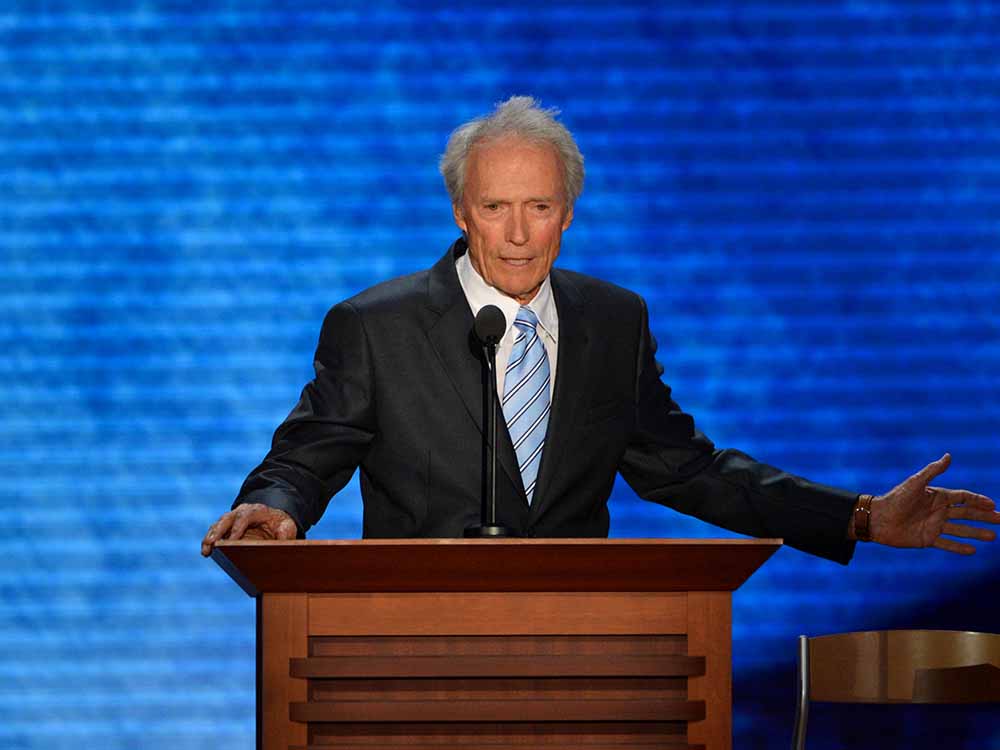The Birth of Eastwooding at the RNC
Clint Eastwood was invited to speak at the RNC to endorse the Republican nominee for president, Mitt Romney. However, what transpired during Eastwood’s time on stage was unexpected and became the focal point of the event. Instead of delivering a conventional speech, Eastwood engaged in a unique form of political commentary by addressing an empty chair, pretending that President Barack Obama was seated in it.
This unscripted and improvisational performance captured the attention of the audience, the media, and subsequently, the entire nation. The act of addressing an imaginary Obama in an empty chair soon became known as “Eastwooding,” named after the actor himself.
Internet Memes and Social Media Explosion
Following Eastwood’s unconventional speech, the internet exploded with creativity as users across various social media platforms began to share images and memes depicting empty chairs in various contexts. The trend quickly gained momentum, and people from all walks of life contributed to the viral nature of Eastwooding.
Social media platforms, particularly Twitter, Instagram, and Facebook, became flooded with images of individuals, celebrities, and even pets engaging in Eastwooding. The hashtag #Eastwooding began trending on Twitter, further propelling the phenomenon into the mainstream consciousness.
Political Satire and Public Reaction
While Eastwooding started as a form of political satire, it also sparked discussions about the state of political discourse and the role of celebrities in endorsing candidates. Some praised Eastwood for his creativity and boldness, applauding him for injecting humor into the serious atmosphere of the RNC. Others, however, criticized the actor for what they perceived as a disrespectful and confusing stunt.
The political impact of Eastwooding was mixed, with some arguing that it undermined the seriousness of the presidential race, while others saw it as a refreshing break from traditional political speeches. The incident highlighted the intersection of entertainment and politics, prompting a broader conversation about the influence of celebrities in shaping public opinion.
The Legacy of Eastwooding
Despite its initial burst of popularity, Eastwooding eventually faded from the forefront of public consciousness. However, it left a lasting legacy as a symbol of unconventional political expression and internet culture. The memes and images created during the Eastwooding craze remain archived on the internet, serving as a reminder of the unpredictable and sometimes humorous nature of political events.
Eastwooding also paved the way for other forms of political satire and unconventional activism in the digital age. The episode demonstrated the power of social media to rapidly amplify and disseminate creative expressions, turning a spontaneous moment into a viral sensation with lasting cultural impact.
Reflections on Eastwooding and the Changing Landscape of Political Discourse
In retrospect, Eastwooding serves as a noteworthy chapter in the evolving narrative of political communication. The incident raised questions about the intersection of entertainment and politics, the role of humor in serious discussions, and the impact of viral trends on public perception.
As political landscapes continue to evolve and technology shapes the way information is disseminated, Eastwooding remains a cultural touchstone—a moment when an unexpected turn of events captured the collective imagination of a nation. Whether celebrated for its creativity or critiqued for its perceived irreverence, Eastwooding stands as a testament to the power of spontaneity in shaping public discourse and leaving an indelible mark on the cultural and political landscape of 2012











